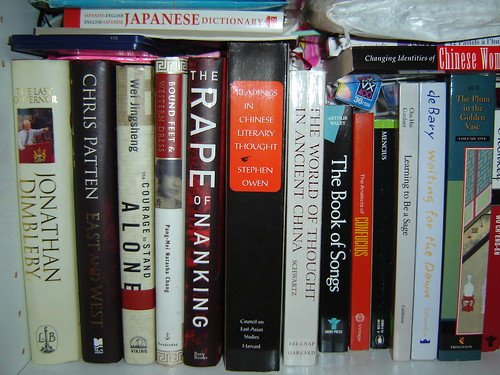Ten Books That Shaped China and Chinese
Traditional Chinese culture is so extensive and profound that countless experts devote their entire life only to glimpse a piece. To select best of the best, Mei Chaorong (Wuhan University) chose the most influenced 10 masterpiece books from China’s Qin Dysnasty to late Qing Dynasty, among the greatest achievements, the highest value of 2000 years of Chinese culture. They include one translation work, two classic collections, three history books, and four philosophers.
This 10 books cover broad range of topics including philosophical, historical, military, politics, languages, and so many other fields. They not only had far-reaching impact on various aspects of China’s tradition, politics and other fields but also influenced through out the world.
1. The I Ching (Book of Changes) 易经 (by various authors)
Recognized by both Confucians and Taoists as a foundational work, The I Ching was originally used for divination, kind of like palm reading or interpreting the stars. It differs from simple prognostication, however, in that it demands us, as diviners, to cultivate an understanding of the world and ourselves.
2. Tao Te Ching 道德经 (by LaoZi)
Reportedly written by a sage named Lao Tzu over 2,500 years ago, the Tao Te Ching is one of the most succinct–and yet among the most profound–spiritual texts ever written. Short enough to read in an afternoon, subtle enough to study for a lifetime, the Tao Te Ching distills into razor-sharp poetry centuries of spiritual inquiry into the Tao–the “Way” of the natural world around us that reveals the ultimate organizing principle of the universe.
3. The Analects of Confucius 论语 (by Confucius)
Confucius is recognized as China’s first and greatest teacher, and his ideas have been the fertile soil in which the Chinese cultural tradition has flourished. Although Confucius enjoyed great popularity as a teacher, and many of his students found their way into political office, he personally had little influence in the State of Lu. And so he began to travel from state to state as an itinerant philosopher to persuade political leaders that his teachings were a formula for social and political success. Eventually, his philosophies came to dictate the standard of behavior for all of society–including the emperor himself.
4. The Art of War 孙子兵法 (by Sun Tzu)
“The most useful and important book ever written for aspiring leaders.”
–Toronto Sun Times
5. Mencius 孟子 (by Mencius)
Mencius was the philosopher whose influence upon ancient Chinese thought was second only to that of Confucius, whose teachings Mencius defended and expanded. The Mencius, in which he recounts his dialogues with kings, dukes, and military men, as well as other philosophers, is one of the four books that make up the essential Confucian corpus.
6. Records of the Grand Historian 史记 (by Sima Qian)
The Best Chinese History Book Ever Written, everyone agrees.
7. Romance of Three Kingdoms 三国演义 (by Luo Guanzhong)
“The empire, long divided, must unite; long united, must divide. Thus it has ever been.” Echoing the rhythms of Chinese history itself, the monumental tale Three Kingdoms begins. As important for Chinese culture as the Homeric epics have been for the West, this fourteenth-century masterpiece continues to be loved and read throughout China today.
8. ZiZhi TongJian 资治通鉴 (Comprehensive Mirror to Aid in Government) (by Sima Guang)
The book chronologically narrates the history of China from the Warring States to the Five Dynasties (403 B.C.-959 C.E). It had an enormous influence on later Chinese historical writing, either directly of through its many abbreviations, continuations, and adaptations. It remains an extraordinarily useful first reference for a quick and reliable coverage of events at a particular time.
9. The Four Books 四书集注 (by Zhu Xi)
The Four Books — Great Learning, Analects, Mencius, and Maintaining Perfect Balance — have been read and understood by the Chinese since the twelfth century. Zhu Xi brought them to another level by extensive notes and explanations.
10. Evolution and Ethics 天演论 (by T. H. Huxley)
Thomas Henry Huxley (1825-1895) was one of the most prominent evolutionists of the late nineteenth century. A close companion of Charles Darwin, Huxley developed a reputation as “Darwin’s Bulldog” for his relentless defense of evolutionary theory. Evolution and Ethics, widely considered to be his greatest lecture, distilled a lifetime’s wisdom and sensitive understanding of the nature and needs of humankind.
Yan Fu translated it into Chinese in 1897, and it shook entire Chinese society with this historical theory, just like it did everywhere else in the world.
* * * * * * * * *
These are ten great books that shaped the traditional China and Chinese culture. They used to be “must read” for Chinese students and scholars. However, since early twentieth century, with the invasion of prevailing western troops and culture, they are dumped as “outdated” “poisonous” “rubbish” by mainstream education.
As a result, nowadays, very few Chinese actually read these traditional classics. Although there are minor voices talking about reviving them, little is done to reintroduce them back into students’ reading list. What shaped our ancestors might not exist in the future.





San guo is my favorite: awesome stories!